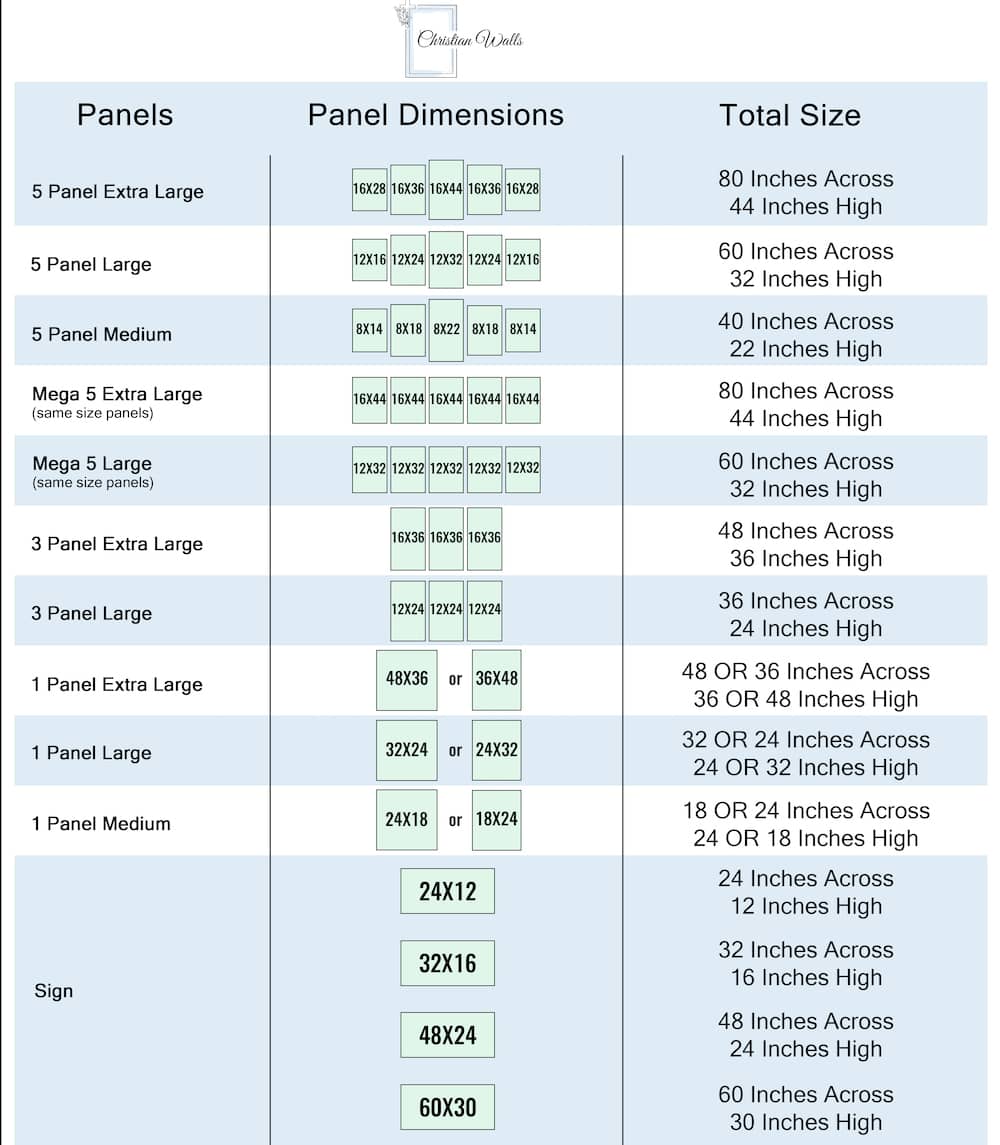What does the Lord’s Prayer [Really] mean? (Deep Dive)
![What does the Lord’s Prayer [Really] mean? (Deep Dive)](http://www.christianwalls.com/cdn/shop/articles/whatisthemeaningofthelordsprayer_1024x1024.progressive.jpg?v=1627477167)
The Meaning of the Lord's Prayer KJV & NIV

The Lord’s Prayer is one portion of scripture that has been memorized throughout the generations. Not only is it an essential part of religious gatherings, but as believers, it has laid the foundational work of how we should pray.
As we dive in to learn more about The Lord’s Prayer meaning, let’s begin with where it originated from.
Table of Contents
- Where Do You Find the Lord’s Prayer in the Bible?
- The Lord’s Prayer in the Book of Matthew
- The Lord’s Prayer in the Book of Luke
- Who Wrote the Lord’s Prayer?What Are the Elements of the Lord’s Prayer?
- What is the Main Message of the Lord’s Prayer?
- What does “Our Father, who art in heaven, hallowed be thy name,” mean?
- What does “Thy kingdom come; thy will be done on earth as it is in heaven.” mean?
- What does “Give us this day our daily bread.” mean?
- What does “Forgive us our trespasses, as we forgive those who trespass against us.” mean?
- What does “lead us not into temptation but deliver us from evil.” mean?
- Traditional vs. Contemporary Versions of The Lords Prayer
- Traditional Meaning of the Lords Prayer
- Contemporary Meaning of the Lords Prayer
- What is the correct version of the Lord’s Prayer?
1.) Where Do You Find the Lord’s Prayer in the Bible?
The Lord’s Prayer can be found in the Gospels of Matthew and Luke in the New Testament of the Bible. In both of these texts, we can see Jesus teaching His disciples the model they should pray.
The Lord’s Prayer in the Book of Matthew
The Lord's Prayer in Matthew 6:9-13 in the NIV translation says,
“Our Father in heaven,
hallowed be your name,
your kingdom come,
your will be done,
on earth as it is in heaven.
Give us today our daily bread.
And forgive us our debts,
as we also have forgiven our debtors.
And lead us not into temptation,
but deliver us from the evil one.
The Lord’s Prayer in the Book of Luke
The Lord's Prayer in Luke says:
“He said to them, ‘When you pray, say:
Father,
hallowed be your name,
your kingdom come.
Give us each day our daily bread.
Forgive us our sins,
for we also forgive everyone who sins against us.
And lead us not into temptation.’”
Luke 11:2-4, NIV
2.) Who Wrote the Lord’s Prayer?
The Lord's Prayer was spoken and taught by Jesus Christ to his disciples. As you read the Lord’s Prayer in the Gospels, you may notice that in most translations, part of the text is written in red, indicating the words of Jesus Christ. However, as we study this method of prayer, we must remember that Jesus was teaching His disciples to pray as he had learned from the traditions of His Jewish upbringing, as well as from what He gleaned from the rabbis in the synagogue.
In Jewish culture, prayer took the form of two distinct sections. The first portion was dedicated to praising God for who He is and what He has done. The second portion consisted of presenting our requests to the Lord. This model of prayer is consistent with both the Kaddish, which is the contemporary Jewish liturgy in Jesus’ day, as well as the Talmud, also known as the sacred law of Jewish culture.
While Jesus was fully man and fully God, with the Spirit of God living within Him, we can conclude that the words of the Lord’s Prayer in the Gospels were both learned through generational traditions and equally inspired by God Himself.
3.) What Are the Elements of the Lord’s Prayer?
The elements of the The Lord’s Prayer is that it's a beloved part of God’s Word. Not only is it God-breathed, but the Lord’s Prayer includes important instructions from Jesus while also being an intentional model of how we should pray.
If you meditate on this prayer, you may notice the specific themes that flow from these verses. These themes and ideas offer praise, a surrendering to God’s Will, requesting supplication for our needs, seeking repentance and forgiveness, and protection from the plans and schemes of the enemy.
Communication is essential in any relationship, and ours with the Father is no different. The Lord’s Prayer is an excellent method to practice as you are refining your prayer life. This prayer template will help you remember His goodness, His power, and His provision as you focus your adoration on Him.
4.) What is the Main Message of the Lord’s Prayer?
The central or main message of the Lord's Prayer is it's purpose is to redirect our vision and our heart back to the heart of God. As we spend time in the presence of the Father, through this prayer method, we can meditate on who He is as the Lord of all. Spending time in prayer, we can ponder the work He has planned for us, His generosity and goodness, His sovereignty over every circumstance, and the assurance that His Spirit will help us in every situation.
As we take a deeper look into each section of the Lord’s Prayer, let’s be reminded that the thread of the Father is woven throughout.
What does “Our Father, who art in heaven, hallowed be thy name,” mean?
The meaning of "Our Father, who art in Heaven, hallowed by thy name" is to prepare our hearts for worship and reminds us that God’s name alone should be revered. As we declare and acknowledge that His throne is in heaven, we come into agreement that He is Lord of all.
Psalm 103:19, NIV says, “The Lord has established His throne in heaven, and His Kingdom rules over all.”
We can have confidence that because of His sovereignty, nothing goes unnoticed as we put our complete trust in Him. This is a great truth to remember as we release our problems and circumstances to Him and surrender to His faithfulness.
What does “Thy kingdom come; thy will be done on earth as it is in heaven.” mean?
The meaning of "Thy kingdom come; thy will be done on earth as it is in heaven" is we are coming into agreement with heaven and choosing to surrender to God’s Will and plans for our lives. As Christians, we now have the Holy Spirit dwelling inside of our hearts, and because of that, we are bringing heaven to the world around us.
According to 2 Corinthians 5:20, “We are therefore Christ’s ambassadors, as though God were making His appeal through us.” As we continue to seek Him and His will, we can live freely as heaven’s representatives to the world through reconciliation and healing, among other signs and miracles of heaven.
Because the Holy Spirit abides in us as His ambassadors, we can say what the Father says and do what He does. As we remain in Him and His will, we will bring His light, love, and truth to those on earth.
What does “Give us this day our daily bread.” mean?
The meaning of "Give us this day our daily bread" is that we have faith that God that he will sustain and provide for us everything we need. Throughout the Bible, bread has been symbolic of God’s provision. We see it in Exodus 16 in the Old Testament when God provided the Israelites with daily manna. We also read about it in Mark 6 when Jesus miraculously feeds the crowds. And lastly, at the last supper, we see how symbolic bread is when Jesus breaks the loaf the night before His eternal and ultimate provision – His life for ours.
Bread has been a provisional theme throughout God’s Word, and as we ask God for our daily bread, we are partnering with the faith that God will sustain and provide for us everything we need. Therefore, as you pray this portion of the Lord’s Prayer, may you consider that daily bread is more than just a physical provision but also a spiritual and emotional one as well.
Because He is Jehovah Jireh, we can be confident that as we ask Him to supply our needs, He will do so in Christ Jesus.
What does “Forgive us our trespasses, as we forgive those who trespass against us.” mean?
"Forgive us our trespasses, as we forgive those who trespass against us" means that beginning with God, as He freely forgives us and through us as we extend mercy to those who have wronged us. His word is very clear that we will be forgiven when we forgive others. This portion of the Lord’s Prayer is not one-sided but a complete circle.
When we study the life of Jesus and allow Him to transform our lives as believers, we must surrender to the act and heart posture of forgiving the one who has wronged us. Forgiveness is an act that is very close to the Father’s heart.
Matthew 6 continues in verse 14, “For if you forgive other people when they sin against you, your heavenly Father will also forgive you.”
What does “lead us not into temptation but deliver us from evil.” mean?
The meaning of"lead us not into temptation but deliver us from evil" is the Lord’s Prayer shifts our focus from ourselves and the trust in our own plans and redirects it to the holiness and goodness of God. As we close this model of prayer and seek protection from the evil one, we can know that no evil scheme will come against us because God is for us.
2 Thessalonians 3:3, NIV offers encouragement by saying, “The Lord is faithful, and He will strengthen you and protect you from the evil one.”
As we remember His faithfulness in the call He has placed over our lives, we will be able to continue the path in strength and courage, knowing that our God is bigger than any plan the enemy can try to entrap us with. As we partner with the kingdom of heaven and declare the Word of His provision in this area, we can move forth steadily and victoriously.
5.) Traditional vs. Contemporary Versions of The Lords Prayer
The difference of the traditional and contemporary versions of the Lords Prayer is from the conception of God’s Word written on paper, the English language alone has adopted over 450 translations of the Bible. As culture has transformed throughout history, we have seen many of these versions phased out and no longer in print. However, today, we still have an abundance of traditional and modern translations to choose from.
Traditional Meaning of the Lords Prayer
The King James Version is one of the earliest copies of the Bible translated to the English language and can be considered the traditional meaning of the Lords Prayer. This version is an excellent option for someone who loves literature and wants to study the Lord’s Prayer in one of its founding English versions.
“Our Father which art in heaven, Hallowed be thy name.
Thy kingdom come. Thy will be done in earth, as it is in heaven.
Give us this day our daily bread.
And forgive us our debts, as we forgive our debtors.
And lead us not into temptation, but deliver us from evil:
For thine is the kingdom, and the power, and the glory, forever. Amen”
Matthew 6:9-13, KJV
Contemporary Meaning of the Lords Prayer
Contemporary meaning of the Lords Prayer is also another great study tool for those looking for a fresh, relatable version of God’s Holy Word, the Message translation is perfect for just that.
“Our Father in heaven, Reveal who you are.
Set the world right; Do what’s best – as above, so below.
Keep us alive with three square meals.
Keep us forgiven with you and forgiving others.
Keep us safe from ourselves and the Devil.”
Matthew 6:9-13, MSG
6.) What is the correct version of the Lord’s Prayer?
In short, I don’t believe that there is one correct version of the Lord’s Prayer and if the different versions are superior to another. Just as God can’t be conformed to one box, one characteristic, or one virtue, what a gift it is to have many contrasting and complementary translations of His living and active word!
Another thing to consider is that humanity and culture are constantly evolving. And while more traditional versions of scripture are beautiful and timeless, contemporary versions are more sought after in today’s world.
With that being said, let us be followers of Christ who meet those in our spheres exactly where they are at. As we teach and model for them how to pray, let us remember that God’s Word never fails, it is still relevant for today, and thanks to the transformation of literature, it can be applied to any walk of life.
SHARE:






















